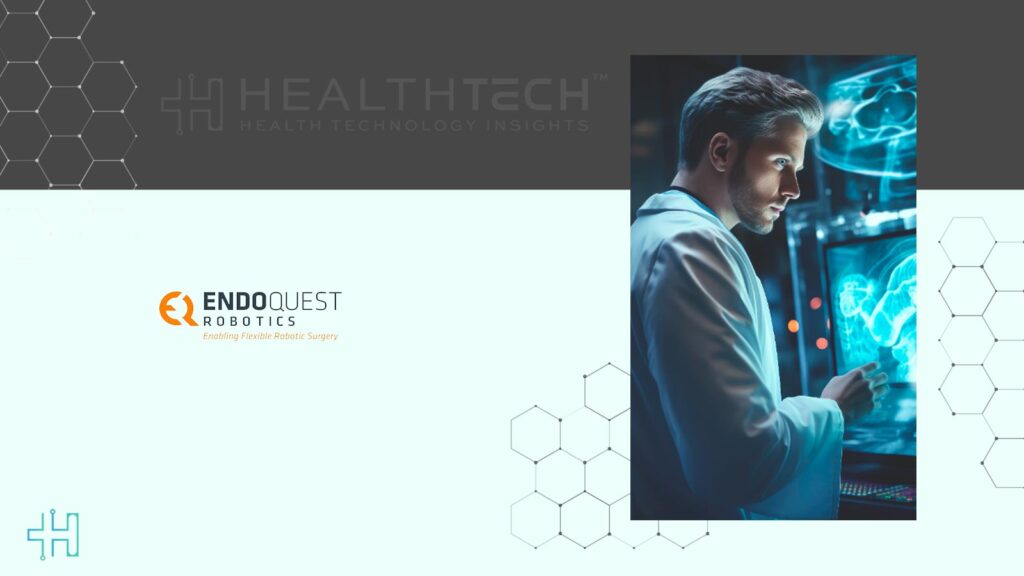EndoQuest Robotics, Inc., a leader in robotic surgical technology for endoluminal procedures, announced a major milestone in the PARADIGM Trial. This multicenter study evaluates the EndoQuest Endoluminal Surgical System for lower gastrointestinal procedures performed by both colorectal surgeons and gastroenterologists. The trial marks the first time a gastroenterologist has completed a fully robotic endoscopic submucosal dissection during an FDA Investigational Device Exemption pivotal study. Previous cases in the trial involved colorectal surgeons at HCA Houston Healthcare and AdventHealth Orlando.
Health Technology Insights: 67% of Medical Groups Have Behavioral Health Specialists — AdvancedMD Survey
Dr. Norio Fukami, a Professor of Medicine and Director of Therapeutic Endoscopy at Mayo Clinic Arizona, successfully performed a robotic endoscopic submucosal dissection using the EndoQuest system to remove a complex 4 cm colorectal lesion. Dr. Fukami, who is recognized globally for his expertise in advanced endoluminal techniques and was an editor of the first English textbook on ESD, described the device as intuitive and easy to use. He said it provides dynamic traction and counter-traction, making complex procedures much more manageable and natural. Dr. Fukami believes this technology will revolutionize advanced endoluminal therapies by acting as a “second hand” for surgeons, improving reproducibility and easing the physical and mental strain for both patients and doctors.
Health Technology Insights: Incredible Health Launches AI Agents to Boost Healthcare Hiring
Endoscopic submucosal dissection has become an important treatment option for early gastrointestinal lesions, allowing many patients to avoid major surgeries like colectomies. Despite its benefits, ESD is technically demanding due to the limitations of conventional flexible endoscopes. The EndoQuest system aims to simplify these procedures by enabling surgical actions previously impossible in therapeutic endoscopy. Research from Brigham and Women’s Hospital, presented at Digestive Disease Week in 2024 and 2025, showed the system significantly shortens the learning curve for novice gastroenterologists in performing ESD and closing full-thickness defects compared to traditional methods.
Dr. Todd Wilson, Chief Medical Officer and Chair of EndoQuest’s International Advisory Board, emphasized the rapid growth of therapeutic endoscopy as a field. He noted that the number of Advanced Endoscopy Fellowship programs has increased by more than 50% over the last ten years, reflecting rising interest in organ-sparing treatments. According to Dr. Wilson, EndoQuest’s technology is well-positioned to support this shift by broadening access to robotic assistance in endoluminal care.
Eduardo Fonseca, CEO of EndoQuest Robotics, expressed his commitment to advancing patient care by making robotics accessible beyond operating rooms. He highlighted the company’s focus on expanding robotic technology into endoscopy suites and ambulatory surgery centers, expecting significant clinical and commercial impact beyond their initial work with ESD. The PARADIGM Trial plans to enroll 50 patients across five top U.S. institutions including Brigham and Women’s Hospital, Mayo Clinic Scottsdale, Cleveland Clinic, AdventHealth Orlando, and HCA Healthcare Houston. Once the trial is complete, EndoQuest intends to apply for De Novo authorization to market the Endoluminal Surgical System in the United States.
Health Technology Insights: Smart Meter Unveils iAmbientHealth
To participate in our interviews, please write to our HealthTech Media Room at sudipto@intentamplify.com








